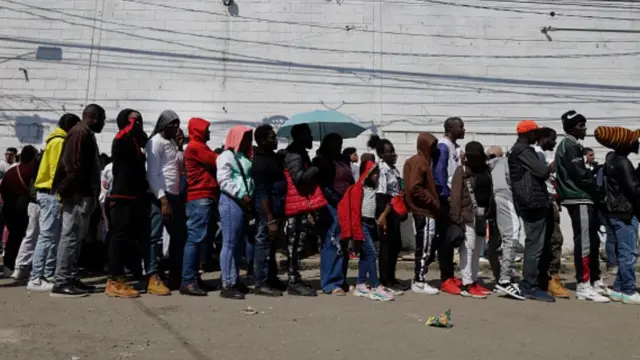As nations worldwide tighten their borders and enforce stricter immigration laws, Nigerians face an urgent reality check. The latest push for tougher immigration policies in countries like the United Kingdom and the United States highlights the growing global trend of prioritizing national security over open borders.
British Conservative Party leader Kemi Badenoch is leading the charge in the UK, proposing sweeping immigration and citizenship reforms. Her argument? A significant portion of gang violence and sexual assault cases in the UK are linked to immigrants. While this claim remains controversial, it has fueled anti-immigrant sentiment and strengthened calls for tighter border controls.
This mirrors policies implemented in the United States under President Donald Trump, who, during his second term, has intensified raids, deportations, and immigration crackdowns. His administration has already deported thousands, including Colombians, in a bid to enforce strict residency laws. Despite public outrage, court challenges, and nationwide protests, Trump’s stance remains firm: America must protect its citizens first.
While every nation has the right to regulate its borders, the real question is whether these blanket immigration policies unfairly punish innocent migrants seeking better lives. This dilemma hits home for Nigeria, where security failures, government corruption, and economic hardship continue to push citizens toward foreign lands—many of which are now shutting their doors.
Nigeria’s porous borders have long been a weak point, allowing insurgents and criminals to enter unchecked. During previous administrations, reports surfaced about politicians allegedly funding mercenaries to create unrest, further compromising national security. Meanwhile, fraudsters using Nigerian passports for international crimes have fueled Nigeria’s reputation as one of the most corrupt nations in global reports.
At the heart of the issue lies a deeper problem: Nigerians themselves are losing faith in their country. Political leaders prioritize personal gain over national development, leaving citizens disillusioned and eager to escape. Religious and tribal divisions have further eroded unity, making it nearly impossible to foster the kind of national pride seen in countries enforcing strict immigration laws.
Read also: World Cancer Day: Nigeria faces urgent Oncologist shortage as Cancer cases surge
The irony is glaring. As Trump and Badenoch push for stricter policies, both were once non-citizens in their respective countries, benefiting from the very systems they now seek to limit. Yet, their argument remains persuasive: why should foreign nations provide opportunities for Nigerians when their own government refuses to do the same?
The consequences of Nigeria’s leadership failures are dire. World Cancer Day recently highlighted Nigeria’s growing healthcare crisis, with thousands of Nigerian doctors fleeing abroad for better opportunities. The result? A crippling doctor shortage, further straining an already failing healthcare system. Yet, despite producing some of the best medical professionals in the world, Nigeria’s refusal to support its doctors has forced them to seek refuge in nations now closing their borders.
The question remains: what will it take for Nigerian leaders to invest in their own people? Without major reforms in education, healthcare, and employment policies, Nigerians will continue to seek greener pastures abroad—only to face increasing rejection from countries now prioritizing their own citizens.
The message is clear: while the world moves toward stricter immigration policies, Nigeria must move toward fixing itself. If not, Nigerians may soon find they have nowhere left to turn.






